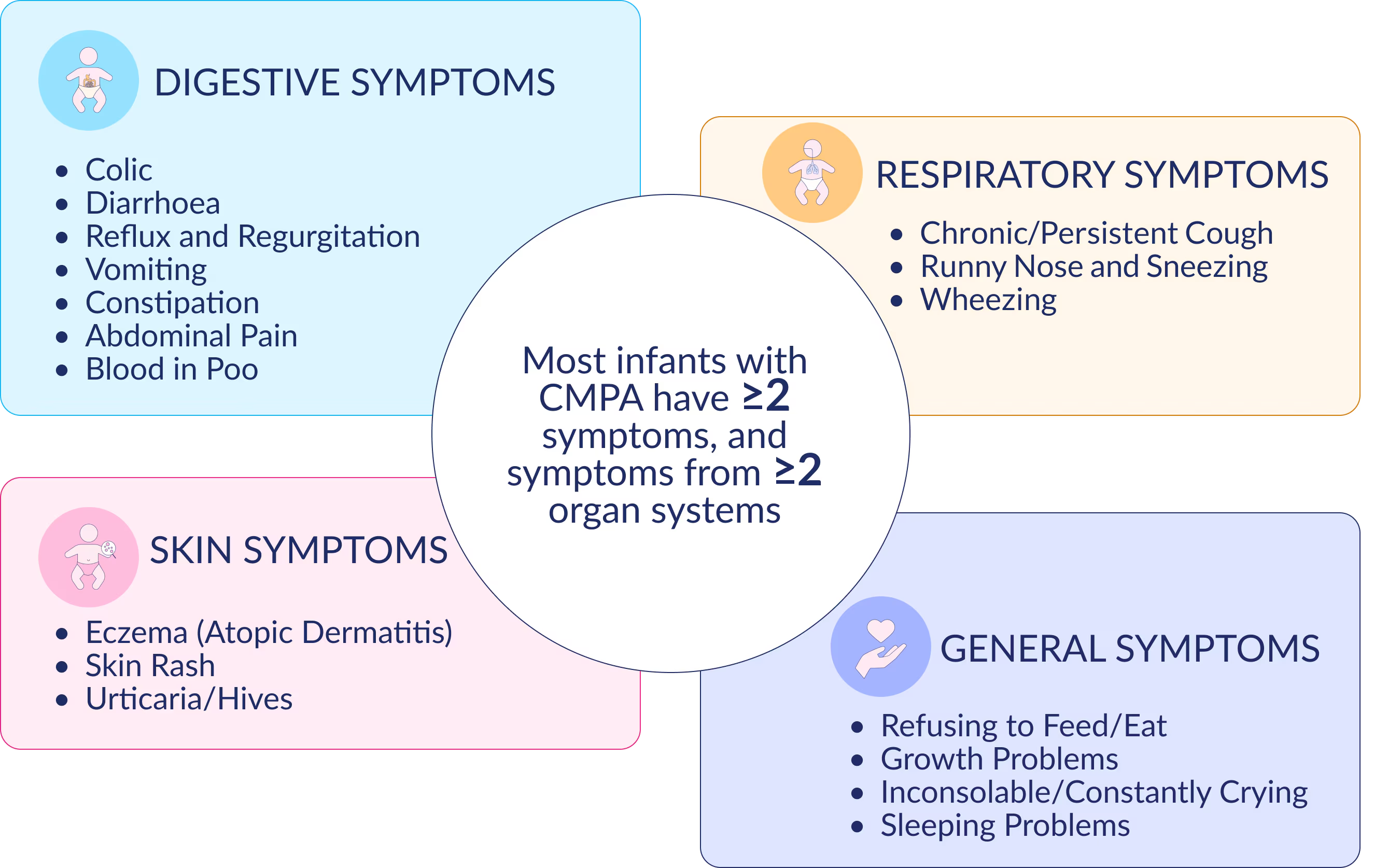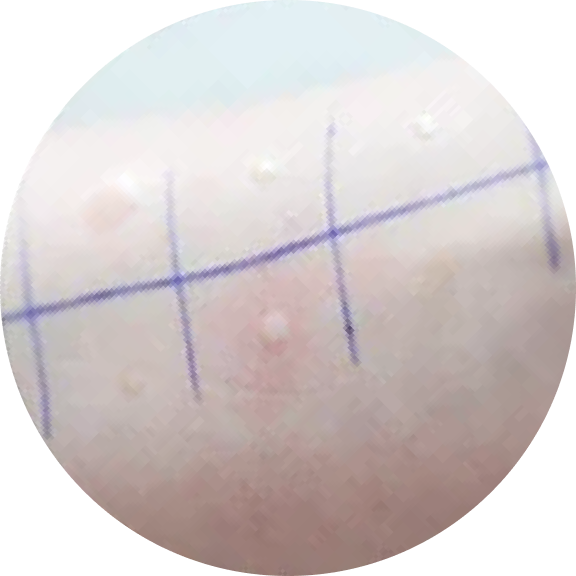
Blood test
A small amount of blood is taken to look for antibodies against cow’s milk protein called Immunoglobulin E (IgE).
The pathway to a clear diagnosis is a step-by-step process. We’ll help you understand those steps, so you feel prepared for the journey and any visits with your doctor/GP.

DIGESTIVE
Up to 60% of affected infants have digestive symptoms
RESPIRATORY
Up to 30% of infants with CMPA have respiratory symptoms
ANAPHYLAXIS
Anaphylactic shock is a much more rare and serious symptom, in which the body undergoes an instant extreme allergic reaction.
SKIN
Up to 60% of affected infants have skin-related symptoms
GENERAL SYMPTOMS
There are lots of general symptoms that can affect children with CMPA, such as inconsolable crying.

Babies with CMPA usually experience more than just one symptom and these symptoms can be very different from one baby to the next. Therefore it is always best to discuss it with your baby’s doctor/GP. They will look at the symptoms in detail and often use a symptom scoring system to decide if it is related to CMPA.

Your doctor/GP will examine your baby and ask you some questions around your baby's diet and their symptoms. If Cow’s Milk Protein Allergy (CMPA), is suspected, your doctor/GP may then perform or recommend specific allergy tests to confirm the diagnosis. These tests may include a blood test, skin prick test or elimination diet followed by food challenge.

A small amount of blood is taken to look for antibodies against cow’s milk protein called Immunoglobulin E (IgE).

The skin is scratched first and a tiny amount of the food/allergen is added to the skin.
GOLD STANDARD

Cow’s milk protein is eliminated for 2 to 6 weeks from the diet and then reintroduced to see if symptoms reappear.
It is important that you do not experiment with a cow’s milk-free diet for your baby without recommendation and guidance from your doctor/GP. Based on the age of your baby and the severity of the symptoms, your doctor/GP will recommend the most suitable solution.
The best way for your doctor/GP to confirm or exclude the diagnosis of CMPA is through an elimination diet, which involves eliminating cow’s milk proteins from your baby’s diet, followed by food challenge, in which cow’s milk protein is reintroduced.
If the diagnosis of CMPA is confirmed, the good news is that with the support of your doctor/GP, CMPA can be managed.
Diagnosis of CMPA should not impact on your breastfeeding routine. Mothers are encouraged to continue breastfeeding even when their babies have CMPA. This requires qualified dietary counselling on the partial or total exclusion of cow's milk protein from the mother's diet. Vitamin D and calcium supplements might be recommended by your doctor/GP.

CMPA can be managed easily with the right dietary changes and feeding. When breastfeeding is not an option, your doctor/GP will decide on which tailored-made solution best suits your baby's needs.
Learn more

There are solutions for every family. Hear from other families affected by CMPA and get tips on everything about feeding your baby.
Learn more